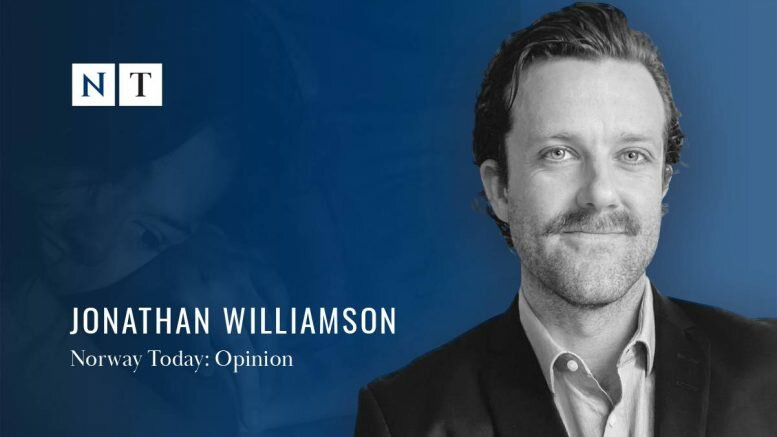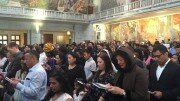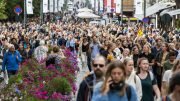There is, perhaps, no more basic or important right than the right to make decisions about one’s own life. However, for a small but rising number of children and young adults, here in Norway, this right is being severely restricted or outright denied on a daily basis. This negative social control has its roots in a mixture of familial duty and cultural reasons. With the Ministry of Justice’s “Action Plan” to combat its rise ending last year, what can be done to address the issue and help these young people?
An often hidden pressure for many
For most of us, those formative years between childhood and adulthood are a precarious time. Life is a constant juggle of excelling at school, maintaining an active social life, and finding one’s purpose in life. However, for a growing number of young people, in Norway, there is an extra source of pressure away from the school halls and playing fields: pressure from one’s familial or societal unit.
This is a coercive and often hidden pressure called “negative social control.” The Nordic Council defines it as “systematic attempts to enforce norms –including in the family – that restrict individual freedom and rights under the law and the UN Convention on the Rights of the Child.” Violence, abuse, and coercion form the basis of this control. It can range broadly from familial or societal conflicts about a choice of friends or partners, one’s sexual orientation to the more extreme control involving female genital mutilation, honor-based violence, forced and/or underage marriages.
Often the people most affected have either grown up in Norway or have recently moved here but possess an immigrant background. They, or their families, have fled countries where human rights, gender equality and norms, individual freedoms and liberties have been severely weakened by years of civil war, a lack of basic political or economic infrastructures, and ethnic conflicts. Furthermore, those born or raised in faith communities, or even sects, can also fall victims to these methods of negative control.
Government reports highlights alarming recent rise
The Norwegian government has been keeping close tabs on the rise of negative social control in recent years. Statistics Norway (Statistiks Sentralbyrå – SSB), the government’s statistics bureau, released its figures for family protection cases last September.
For the year 2019 (the most recent data available) there were 30,360 new family protection cases in Norway. Of these cases, 19 involved forced marriage, 90 involved “minority/culture issues,” and a further 342 involving “multi-generational issues.” Some 4.216 (or over 10% of all cases) involved “complex problems in the family.”
A report compiled last year, during the height of the COVID-19 pandemic, by the Directorate for Integration and Diversity (ImDi) has shown that negative social control has been on the rise. One statistic stuck out more than most. This was the chilling fact of a year-on-year increase of children affected by negative social control. There were, for the first six months of 2020, 285 more reported cases than the same period for 2019.
With most schools experiencing some form of lockdown for most of last year, young people were not able to access either school or communal minority counseling. Furthermore, the added social and familial pressure of children being at home (almost) 24/7 may have only aggravated tensions and pressures with a household.
More education and dialogue within local communities
So, with this form of control on the rise, here in Norway, what can be done to help combat it? First and foremost, education is absolutely paramount. Though there is a Norwegian cultural course attached to many immigrants visas, this is not enough.
More investment in diversity counselors, interpreters, and language courses for immigrants is needed to better explain needed to explain why everyone in Norway has the right to be able to decide their one life, free from societal and familial pressure and control.
Dialogue and cooperation between religious leaders, faith-based organizations, and all forms of government is also key. This ongoing dialogue can help shape-changing attitudes, and practices, throughout local and national communities.
Work must be done with local leaders, in immigrant communities, to better educate parents and children about the rights of women and children in Norway and the forms that negative social control can take.
Increase diversity training, counselors, and government liaison
So-called “minority issues” are not just a problem in the big cities of Norway. The Directorate of Integration and Diversity (IMDi – Integrerings- og mangfoldsdirektoratet) has 49 minority counselors, employed in middle and secondary schools, throughout Norway.
There are 38 minority counselors that work for 15 communal governments in Norway. The 80 odd minority counselors, working throughout Norway, are a start but surely more are needed in such a diverse and multicultural society? More diversity support for the children affected and local communities is direly needed.
The Children and Families Department has formed a specific “competence team” to combat all forms of negative social control. It is a national inter-agency task force that liaises and works with many government agencies, police and health services, and Norwegian missions abroad. Further continued support of this, from all sides of the political spectrum, will be the key to its ongoing success.
Gender equality and women’s rights a key foreign policy platform
From an international perspective, Norway must also continue its ongoing commitments to stamp out negative social control worldwide. Pushing equality and women’s rights globally were the basis for the election of Norway to the United Nations Security Council last year. Being a middle power, Norway has to work with international and regional organizations to help combat negative social control globally.
Continued work and dialogue to promote Norway’s stated foreign policy directive of the elimination of negative social control must continue. This must be done in cooperation with regional organizations ranging from the European and African Unions, South Asian Association for Regional Co-operation, and the Arab League.
As the debate about processing asylum seekers in Africa has gained attention recently, the Norwegian government’s cooperation with regional and local organizations will become even more important should this option became a reality.
Continue the support of UNICEF programs
The United Nations Children’s Emergency Fund (UNICEF) has two programs, both supported by Norway, which aim to stop some forms of negative social control. The first, to end child marriage, targets 12 mostly South Asia and African countries.
Financial support for girl’s education, the collation of data for policymaking, and the integration of protection and promotion of women’s rights, into national legal frameworks, are all steps to achieve this. Norway has been a key member since 2018 and should further support this program.
For the second program, which aims to stop all female mutilation in Africa by 2063, Norway was, until 2018, the largest financial donor. Here, the goal is to be achieved by strengthening countries’ systems, policies political legislation to ban this horrid form of mutilation. Improved protection, support, and healthcare for women is also a key priority.
Regardless of the economic impact of the COVID-19 pandemic on the budget, both programs are valuable for Norway to support and further investment should continue. The government has announced a NOK 56 million increase, in this year’s budget, in measures to help women and girls in some of the least ‘developed’ countries worldwide. This is a start but more investment and leadership, by Norway, is needed.
Children’s interest should always be first priority
The last thing that this argument needs is a neandertal discussion about immigration and race. Many of the children suffering this form of negative social control have grown up, or are children of people who have grown up, in war zones, failed states, and broken societies. The either firsthand or generational suffering and trauma some of these children, and their families, have experienced is beyond what many of us could ever fathom.
Before we let those on the fringes of politics exploit this rise of negative social control for their own nefarious political means, a serious and balanced discussion is needed. Part of this discussion is how best to help these children and young adults transition out of home and into broader society as happy, healthy, and productive people.
For those that would deny these families or children entry to Norway moaning or complaining that they “should stay in their own country with their own country,” a history lesson beckons. It was less than two centuries ago that hordes of people, from this country, fled huge societal issues among them rampant alcoholism.
They fled to places like the U.S. for a better life. Like those Norwegians then, these kids deserve the same chance to escape past societal and cultural problems and build a brighter future.
The opinions expressed are those of the author and are not held by Norway Today unless specifically stated.
About the author:
Jonathan is a lover of the written word. He believes the best way to combat this polarization of news and politics, in our time, is by having a balanced view. Both sides of the story are equally important. He also enjoys traveling and live music.
Source: #Norway Today / #NorwayTodayNews
Do you have a news tip for Norway Today? We want to hear it. Get in touch at [email protected]





Leave a comment